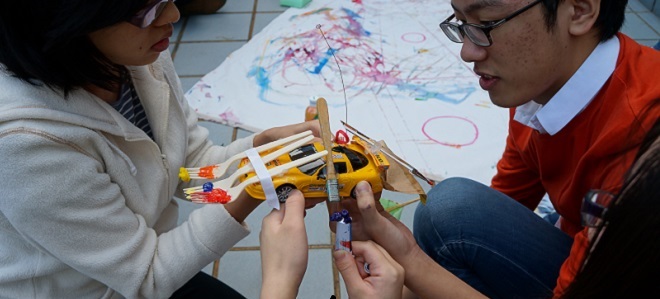
Mission, Goals and Objectives
Mission
The mission of the Common Core Program is to support the mission and vision of HKUST by providing a broad and well-rounded education to its undergraduates that nurtures them to be responsible, ethical and compassionate citizens with the aspiration and competency to excel in their endeavors.
Goals
The Common Core Program strives to provide undergraduate students with a well-rounded quality education that broadens their horizons, inspires and ignites their passion for learning and empowers them for lifelong pursuit of excellence. Specifically, the goals of the Common Core Program are:
(a)
Broadening horizons: to allow students to gain intellectual breadth and an appreciation of intellectual achievements across and beyond the main academic disciplines of their studies.
(b)
A passion for learning: to spark students’ passion for learning and enhance their higher order intellectual abilities: analysis and evaluation; judgment and critical thinking; defining and solving problems.
(c)
A lifelong pursuit of excellence: to provide a foundation for students’ life-long development through personal growth, preparation for future careers and opportunities to make contributions to the community.
Objectives
The objectives of the Common Core Program are:
(a)
To broaden students’ knowledge beyond the main academic disciplines: science and technology, social studies, and arts and humanities, such that students can gain intellectual breadth. (b)
To instill knowledge on the human achievements in the arts and culture, the social structures and forms, and the significance of scientific discovery and technical accomplishments.
(c)
To spark students’ passion for learning by teaching and learning pedagogies that stimulate them to think for themselves, taking their own routes through the materials, to conduct self-directed research and inquiry, and to communicate their discoveries, explanations and narratives to others.
(d)
To help develop higher-order thinking skills through activities that require students to form and communicate judgments, to apply theories and concepts to unfamiliar situations, or to analyze cases and solve problems.
(e)
To stimulate students’ development of skills in the areas of language and communication, quantitative reasoning and computer literacy.
(f)
To nurture the development of students’ attributes including social adaptability, the willingness to accept challenges, and the ability to work independently and in collaboration.
(g)
To cultivate the development of responsible, ethical and compassionate citizens who can reflect on personal choices and basic human values, and understand the social and human impact of scientific and technical advances.
(h)
To equip students with strategies to manage their lives, contribute to the community, and live up to the expectations that society places on its educated citizens.





